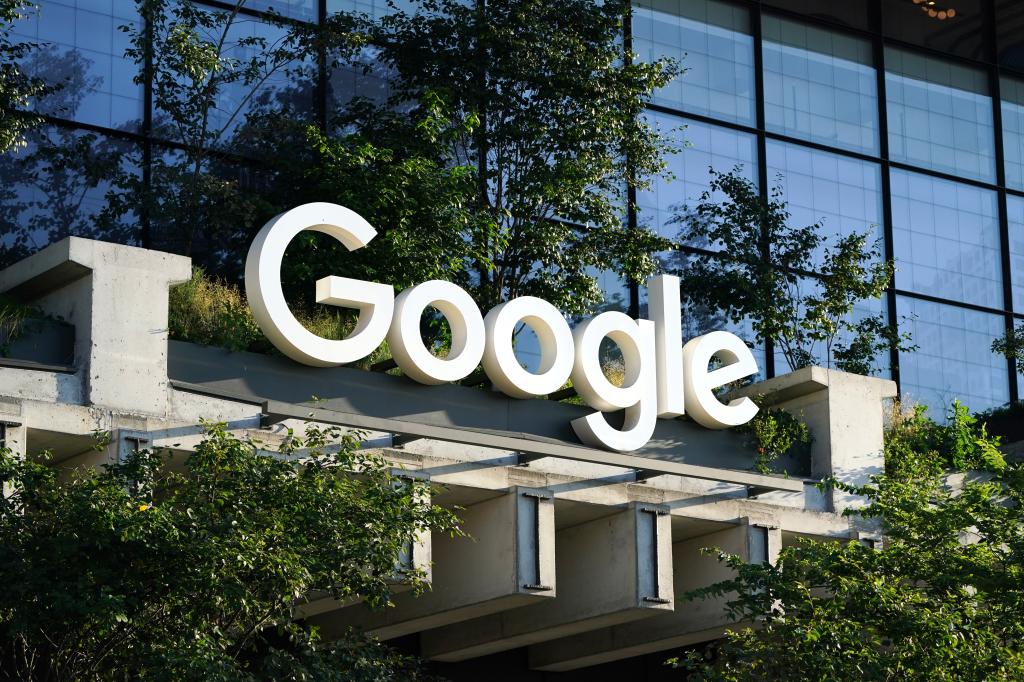God I hope it ends up splitting off Chrome. I think Google has done a great job with Chrome. But the recent Manifest v3 makes it clear they’re going to greatly degrade their users’ experience for Google’s bottom line. And they’re using their market dominance to do it.
What does that even look like as a business model, though? There’s an expectation now that you don’t pay for web browsers. What would a standalone Chrome, Inc. look like?
Something very close to Mozilla in my opinion. They’d have the browser as their core product, a few more apps as a logical extension of that (maybe a mail client like Thubderbird), perhaps Chrome Inc would inherit google’s office suite? That would be a breath of fresh air. Maybe revive a few of Google’s killed ventures that seemed more than promising.
Separate the search engine from anything that stinks of advertising so it can return to what it’s supposed to do: return the most relevant results.
Because even appending
udm=14only gets rid of promoted links and in-page advertising, it does f**k-all to correct manipulated search results.Can you elaborate on the business model of a search engine that has no ads?
Let’s not make them a business. Search Engines are fundamental core services for the modern globalized and connected world. It’s just like your post-office service. Make it an internationally owned and funded non-profit organization with open-source and the goal of enabling the unrestricted sharing of knowledge over the internet.
The only business model that really works is charging people to use it, like Kagi is doing.
like Kagi is doing
I haven’t seen much to suggest Kagi’s results are better than Google’s. But that’s as much a function of time and horsepower as anything.
I would argue that the private model is what’s fundamentally wrong with modern search. Nationalize Google and make it a public utility, like any public library or publicly financed research institution. Open up the front end source code and let people apply their own filters and modifications, rather than locking everything down to force feed you sponsored content.
That’s the only real way to fix search.
Nationalize Google and make it a public utility, like any public library or publicly financed research institution.
This would be great. Running a search engine is very expensive though.
The Internet Archive is probably the closest thing we’ve got to something like this. It’s a non-profit but AFAIK they don’t get any government funding. They’ve got the scrapers and could probably work on a search engine project, but I doubt they could afford it in their current state. They’re spending a lot of money at the moment due to companies filing lawsuits about Internet Archive archiving their content (and a bunch of content is gone from the archive forever as a result
Running a search engine is very expensive though.
The federal government spends about $1.3B a year on advertising and another $37.5B on data collection, with Google being a major recipient of both budgets. Nationalization would save a small fortune.
And for the economic tailwinds that efficient Internet research provides, I’m willing to bet we’d see significant economic benefits that eclipse the base cost, not unlike with Amtrak or the USPS.
The Internet Archive is probably the closest thing we’ve got to something like this.
Them and Wikipedia, definitely. Both make for excellent models of non-profit free-at-point-of-use information services.
Yeah, let’s see how much worse corrupt bureaucrats can make this already rotten turd of a product!
Not trusting the EPA because Exxon has done such an awful job.
It would probably do Google a world of good, depending on what gets split or spun off. A lot of Google products have unrealized potential that’s hamstrung by poor leadership and privacy issues. Maybe at least some of their products will be able to thrive on their own.
invest in Sherman Antitrust Act memes now
Best news I’ve heard all day! Break up Meta, too, while you’re at it!
Amazon.
Disney, Bayer, Unilever
Do it do it do it do it do it do it…
Smash them with a hammer. Google should not exist as it is. Not for decades.
Break up AdSense, chrome, search, android, shatter them all into separate companies that can stop selling out literally every waking aspect of life as their sole business model.
Do it! Then, do every single major conglomerate they’ve allowed to form over the last 30 years
Antitrust comes in waves in the US. First, it’s a free for all to let the tech develop freely…then you see the horrors and a time of antitrust kicks in. This would be the 4th wave since the Sherman Act. Let’s hope it’s a good one.
Interesting! Go ooooonnnn 😍
You can also read about Lina Khan, the current chair on the FTC side of antitrust.
That’s all I had, I’m not an expert, but I hope they go after FB and microsoft too (in case that makes you feel randy like that other guy in the comments) :P
Do you think they’d do Apple?
A human can live their whole life without ever interacting with an Apple product by mistake. I’m not sure about that for android/google/adsense/maps/youtube. It takes a deliberate effort to avoid these guys and I’m still not completely free from it. Slightly easier but still a minefield with Microsoft and FB, especially in niche areas.
Maybe if all their shadiness hadn’t been allowed in the first place they wouldn’t have been able to become a monopoly.
But please, I beg of you, do Adobe next.
No,
AmazonNestle next.Hell, do all the “to big to fail” megacorps.
I remember the days of google being a cool startup that had just made news releasing gmail with a whopping 1GB of storage making everyone go crazy for the invites. It’s a strange feeling.
Yeah, I thought Google was so cool around 2004. Now I can’t wait for them to become irrelevant. I need to stop using “googling” as a verb…
Don’t stop with them
Crush corporations, swiftly and without fanfare rebuild capitalism with worker co-ops, seize the means of production without all that stagnation and failure that usually follows.
rebuild capitalism
Replace, yes?
Let’s just choose our words carefully for now or the people with the money will get spooked and pay the people with the missiles to start blowing things up.
Will cooperatives really be able to offer good services or will they become corrupt sooner or later?
History says corrupt…
How about we start restricting how many businesses a company is allowed to buy out in a year. Maybe allow like 1-2 mergers a year. There no reason we should allow one company to buy everyone and then kill their products and services leaving the consumers holding the bag that will no longer function because the server is gone.
One thing that I’ve always found interesting is that silicon valley has a common start up strategy that is basically: do well enough to get bought buy your bigger competition. Basically, be a threat so your VCs can cash in when a Google, Facebook, etc buys you.
I’m other words, Silicon Valley has a start up culture that feeds an anticompetitive/anti-trust ecosystem. No one complains because they are all making money. It’s the users who slowly suffer and we end up were we are not with 5 companies running the modern web and Internet infrastructure.
I’d go further, restrict the market cap for businesses so they have to spin off if they get too big. Add to that a value limit for the number of boards you can sit on so 30 companies can’t be controlled by the same people.
How does this affect or concern me?
This could affect you in several ways:
Search Experience: If Google is broken up or forced to share data, you might notice changes in how search engines operate. Competitors like DuckDuckGo or Bing could become more competitive, offering better privacy, search results, or features, potentially giving you more choices. Privacy and Data: If Google is required to share data, there might be concerns about how your data is handled across different platforms. On the flip side, increased competition could lead to better privacy practices as companies vie for users. Technology and Services: Google’s services are deeply integrated into many products and platforms. A breakup could impact the availability, integration, or performance of these services, which might affect how you use technology in your daily life. Economic Impact: Google’s size and influence mean that any major changes could have broader economic impacts, potentially affecting industries related to technology, advertising, and beyond. This could indirectly influence job markets, investment trends, or even consumer prices.Overall, these changes could alter how you interact with the internet, your privacy, and the services you rely on daily.
Not sure how that would work…
I’m old enough to remember the breakup of Ma Bell and the way that worked was the creation of a bunch of regional telecom services, that’s not going to work on the Internet.
I guess they could mandate spinning off Android, but that’s not really the problem addressed in the antitrust case, is it?
Maybe split the AdWords side from the Search Engine side?
Making YouTube its own thing again wouldn’t be that hard.
Not breaking up Google because the effects would be inconvenient would literally be letting a monopoly regin because they’re a monopoly.
Shut down services if needed. We can adapt.
Don’t ‘break it up’, nationalize it, and do the same with all these other giant corporations.
Profits could support UBI instead of encouraging billionaires.
That’s not in anyone’s interest. It’s the surest way to have a thousand national search engines which are all shitty. National walled internet Gardens etc
Break it up instead
Not sure where you’re getting the idea that there would be thousands. But as for the shitty part, it’s already shit. Google’s search engine utterly fails at it’s job, and not just because of the rise in LLM/SEO. They waste billions on fancy new AI searches that nobody wants, they accept bribes to get pages to the top of the search, and even when you’re looking at an actual for real result, it often isn’t even what you want.
When a critical industry fails to do its job, it is time to nationalize it. With that said, the criticality of search engines is debatable. I’m cool with breaking it up at a bare minimum. The list of corps in need of getting broken up is way to long.
The idea stems from the propaganda tool that would be if it were state owned. Other countries would seriously discourage or ban its use, but as it is useful they’d need a replacement. Hence a thousand shitty ones.
The idea stems from the propaganda tool that would be if it were state owned.
How is it not currently a propaganda tool? It’s owned by shareholders like blackrock and vanguard. At least with it being nationalized it’s possible to control it democratically.
Our options are:
- An open source nationalized search engine (which would promptly run into problems with SEO, because anybody could see what would get their site the #1 spot). This option can’t honestly be called propaganda, because everyone would know what weights if any are placed on results.
- A blackbox search engine that has been nationalized, with limited ability of the people to know/modify the algorithm, which could be called propaganda, especially if this is controlled by a failed democracy.
- A blackbox search engine owned by the likes of blackrock and vanguard, with no ability to democratically modify the algorithm
None of these options are good, but the third is clearly the worst. The rich should not dictate what results pop up.
Other countries would seriously discourage or ban its use, but as it is useful they’d need a replacement. Hence a thousand shitty ones.
There is only ~200ish countries out there depending on how you count it. Most of them share search engines across borders, and that is unlikely to change, because if they were to see a nationalized search engine as a security problem, they would have already seen google as a security problem. So even if every third country made their own, there would only be a few dozen search engines.
But even assuming there would be 1000 search engines, 1000 shitty search engines is better than 1 shitty search engine with 85% market share. At least with the 1000 shitty engines there is competition. As of now, google is free to mess around with their black box engine however they like, showing and hiding what they like, all at the behest of blackrock, vanguard & company.
So I don’t see how this would be to everyone’s disinterest. Killing google and nationalizing it is exactly in everyone’s interest. Though like I said, the criticality of search engines and therefore the need for nationalized search engines probably isn’t there.
Lol… Democratically.
Just because the U.S. is a joke of a democracy doesn’t mean democracy as a whole is a joke.
*Constitutional Republic.
“Give me the fruit of some else’s labor!!!” Gross.
I don’t agree with that guy but doesn’t that apply to the people running these companies. Profit can only be made by exploiting labour. There can’t be any other way
Profit can only be made by exploiting labour. There can’t be any other way
This is a bad take and suffers from overly-simplistic thinking. Corporations are force multipliers for labor and the economic value of your labor is increased by joining forces with others.
Why is it a bad take. How can there be any other way. Where exactly is profit created from?
Profit is created from the output of productive labor. The amount of profit varies depending on the efficiency of the market and the company.
Companies are force multipliers for labor. The company’s profit comes from that force mulitplication, not by withholding profit from the worker who generated it.
Ignoring the snark in your comment…
I assume you take issue with UBI?
Would you feel different if we ‘required service’ for UBI? For example, some countries have mandatory military service. If we nationalize these giant corporations, we could make working there a way to qualify for UBI.
Do you think UBI is just taking money from the average person and giving it to lazy people who do nothing? Or do you enjoy the separation of the rich while the rest of us struggle for scraps? Do you understand that the UBI would apply to you as well?
Or am I missing deeper thoughts given to your comment?
I don’t worry much about people who have more than me. I am grateful to enjoy my work and my life. I don’t want the government to steal from me and I don’t want them to steal from others either. Even in the black and white world of marxists, exploitation of labor just moves from the oppressors to the government. The government becomes the oppressors. It has never worked, it will never work. People are naturally motivated by profit. It’s built in. Messing with that or short-circuiting the work-reward system is unsustainable.
Who’s labor?
Who is labor?
NY Post
Going to need a much better source than this.
Thanks.
Justice Department officials are considering what remedies to ask a federal judge to order against the search giant, said three people with knowledge of the deliberations involving the agency and state attorneys general who helped to bring the case. They are discussing various proposals, including breaking off parts of Google, such as its Chrome browser or Android smartphone operating system, two of the people said.
…
Last week’s ruling that Google was a monopolist was a landmark antitrust decision, raising serious questions about the power of tech giants in the modern internet era. Apple, Amazon and Meta, which owns Facebook and Instagram, also face antitrust cases. Google is scheduled to go to trial in another antitrust case — this one over ad technology — next month. Any remedies in Google’s search case are likely to reverberate and influence that broader landscape.
TIL, the ruling might actually carry some consequences. I guess we’ll see where this takes us.















